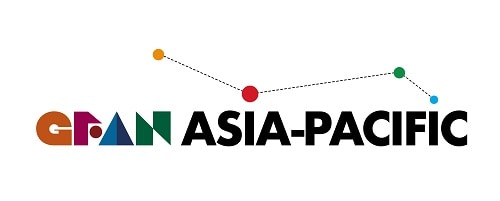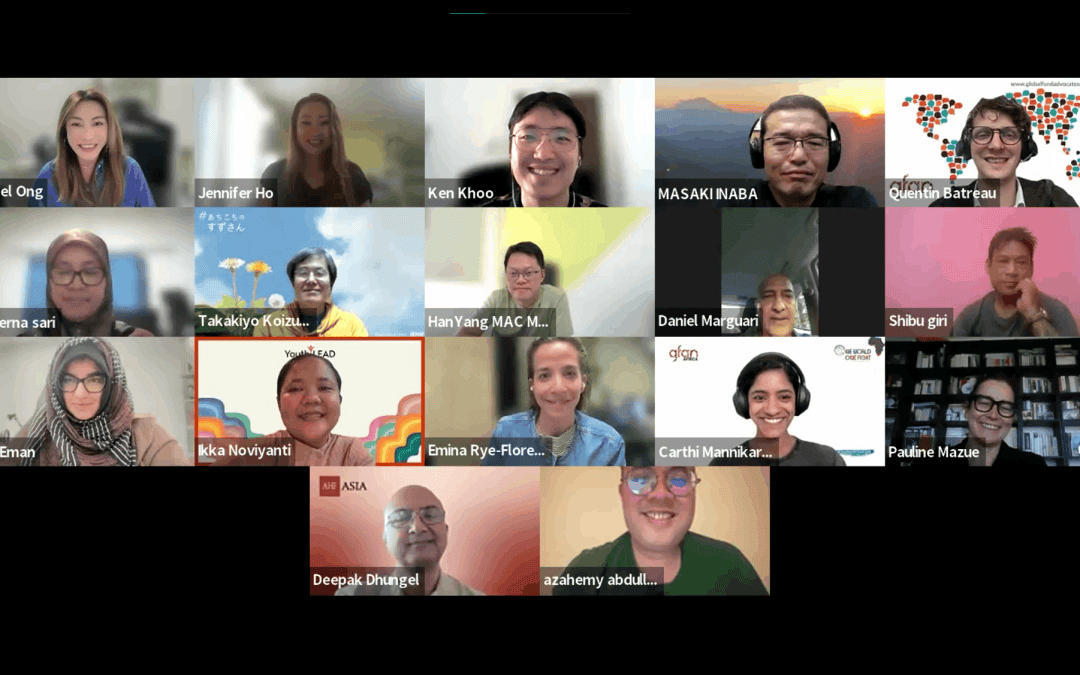The Global Fund Advocates Network Asia-Pacific (GFAN AP) hosted our fourth quarterly webinar on 14 May 2025 to provide partners and stakeholders with updates on recent GFAN AP activities. Discussions were centred on two main topics:
- Firstly, key insights and takeaways from the Global Fund Advocates Network (GFAN) Annual Strategy Meeting held during April in Ottawa, Canada, as well as implications for the Eighth Replenishment, communities and civil society networks.
- Secondly, important discussion points from the 53rd Global Fund Board Meeting, particularly around resource mobilisation, which was recently concluded in Geneva.
The call was attended by approximately 20 participants and opened with introductions and welcome remarks by Jennifer Ho (Operations and Programmes Manager, GFAN AP).
1. Updates from the 2025 GFAN Annual Strategy Meeting
Quentin Batréau (Research and Advocacy Lead, GFAN) provided an overview of the key discussion topics from the meeting:
- In the context of HIV, tuberculosis (TB) and malaria epidemiological outcomes, the impact of the US funding freeze and cuts to bilateral programmes and aid is similar in size and breadth to the “shock” of COVID-19.
- The overall outlook on global health is pretty grim: firstly, due to the freezing of US bilateral aid and subsequent confusion and uncertainty about the re-continuation of programmes; and secondly, due to early signs that point to further funding cuts down the line by the US.
- Other big traditional donors, such as the UK and France, have also announced large cuts to their Official Development Assistance (ODA) budgets.
- In contrast to previous replenishment campaigns, this Eighth Replenishment, the Global Fund Secretariat is adopting a “quieter” and less public approach to advocacy, such as through bilateral meetings with decision-makers rather than a press-heavy campaign.
- The Eighth Replenishment is co-hosted by the UK and South Africa, marking the first time a replenishment has been hosted by two countries as well as the first time a developing country (South Africa) is a co-host.
- There has thus far been no confirmation heard from the Global Fund Secretariat regarding a replenishment conference, in the ‘traditional’ sense.
- Upcoming moments and opportunities for engagement were discussed and considered:
- World Health Assembly (WHA), 19–27 May 2025 – Starting soon in Geneva, the WHA is likely not a strong advocacy space for the Global Fund as it is a very crowded space.
- 4th Financing for Development (FfD4) Conference, 30 June-3 July 2025 – This conference, initially seen as a technical, UN-centric event, is now considered a potential opportunity for engagement, wWith several countries, including France, planning high-level representation.
- 9th Tokyo International Conference on African Development (TICAD 9), 20-22 August 2025 – Given Japan’s status as a reliable and long-time partner to the Global Fund, TICAD 9 will be a key advocacy moment in the Asia Pacific.
- There is some positive outlook in Asia with Japan’s continued support for global health and the Republic of Korea reasserting its commitment to increasing ODA and taking a leading role in global health.
- Given the complexity and unconventional approaches in the Eighth Replenishment campaign, GFAN is focused on developing advocacy tools for both newer and experienced advocates, as well as diversifying messaging and talking points to resonate with different countries and decision-makers and their approaches.
Carthi Mannikarottu (Communications Lead, WACI Health) provided updates on behalf of GFAN Africa:
- GFAN Africa released a number of letters and a joint statement with GFAN AP for World Malaria Day.
- Impact Santé Afrique launched the Coalition of Parliamentarians Engaged to End Malaria in Africa (COPEMA), a parliamentary platform for malaria champions, which will be activated for Global Fund advocacy in the future.
- A meeting was held with the Parliamentary Task Force on Domestic Resource Mobilisation, comprising parliamentarians from nine African countries, which focused on the Eighth Replenishment and civil society advocacy asks.
- A larger parliamentary session is planned for later in the month, including representatives from COPEMA, the Malaria Champions, and the TB Caucus in Africa to share “One World, One Fight” messaging and the Global Fund Secretariat’s presentation on the Eighth Replenishment.
- Bilateral parliamentary engagements are also underway, such as with Italian parliamentarians who are visiting Kenya and being engaged with the Global Fund’s impact. More such coordination is expected over the next few months in collaboration with UK partners.
- Also currently planned is a civil society caucus between the civil society members from the UK and South Africa, given the co-hosting of the Eighth Replenishment by both countries.
- In preparation for C20, WACI Health is co-hosting a working group on Equitable Health For All, and ensuring integration and prioritisation of Global Fund messaging and advocacy.
- A youth forum for young advocates to engage with Global Fund advocacy is also planned for June.
Colleagues who attended the GFAN Annual Strategy Meeting also shared reflections from the meeting and updates on projects related to the Replenishment.
Ani Herna Sari (Chairperson, Yayasan Rekat Peduli Indonesia) spoke about her involvement in a fabric activation campaign that aims to highlight the resilience and collective potential of people living with and/or affected by HIV, TB, and malaria by bringing their stories to life through the creation of a series of fabric patterns inspired by individuals’ life experiences. Ani, representing Indonesia, is one of four community advocates who have been selected to contribute stories to this fabric campaign, alongside representatives from South Africa, Nigeria, and Bolivia.
Ani’s fabric design is inspired by her personal story, which began with her experiences seeking medication for multidrug-resistant TB (MDR-TB) and undergoing treatment while pregnant with her first child, and her journey to becoming an advocate for other survivors affected by TB. The fabric pattern was created by an Indonesian designer and incorporates key elements from Ani’s story, such as imagery of a mother and child, dots and pills, broken glass, and yellow flowers, each symbolising unique aspects of her lived experiences.
There are plans to utilise the fabric pattern created to produce a hijab, shawl, or scarf which will be worn by Ani, as well as in the production of postcards, pocket squares, and other income generating products for the TB community. A film featuring Ani will also be produced beginning in June.
Ikka Noviyanti (Regional Coordinator, Youth LEAD) reflected on discussions during the GFAN Annual Strategy Meeting about changes in the current funding landscape and the evolving strategy of the Global Fund, which has shifted towards more targeted donor engagement. As communities, it is important that we adapt to this targeted strategy as well. Looking ahead to the upcoming 53rd Global Fund Board Meeting, it is crucial that community voices continue to be strongly represented and that the Global Fund continues to uphold its commitment to putting communities at the centre of its strategies. Ikka concluded by affirming her commitment to advocating for sustained and increased funding for communities and civil society in the lead-up to the Eighth Replenishment, a discussion which will continue at the Community Summit at the Asia-Pacific AIDS and Co-Infections Conference (APACC).
Masaki Inaba (Programme Director, Africa Japan Forum (AJF)) noted that the Global Fund has faced a number of challenges in the past, including the global financial crisis of 2008, major reforms in the Global Fund’s structure in 2009, the COVID-19 pandemic from 2020, and now the current global health funding crisis. Masaki provided some key information about Japan:
- A deciding moment and a key advocacy opportunity for Japan’s official development assistance (ODA) and diplomatic policies will be during the Upper House elections in July.
- From his meetings with Diet members in April, Masaki observed strong interest from government and opposition parties on the closure of USAID and suspension or termination of funding for AIDS, TB, and malaria programmes, and its impact in Africa and Asia Pacific.
- The target for Japan’s contribution to the Eighth Replenishment is US$1.08 billion, representing 6% of the minimum global target of US$18 billion.
- To that end, AJF has started a national petition campaign with Japan Trade Union Confederation (JTUC) RENGO to demonstrate support from workers and the general public of Japan for the Global Fund.
- There are also plans for community mobilisation during APACC taking place in Tokyo from 12-14 June 12-14, as well as coordination with Asia-Pacific and African colleagues ahead of TICAD 9.
Daniel Marguari (CEO, Spiritia Foundation) added that the deferment and reprioritisation of activities in Grant Cycle 7 (GC7) and the ensuing reduction in committed funding will impact many civil society and community organisations. It is important that advocacy strategies for the Eighth Replenishment take into account limitations and challenges now faced by communities while still ensuring advocacy efforts continue at a global and country level. It is also important to support civil society and communities who will be busy with budget re-negotiations during the next two months through the development of clearer guidance and a strategy and advocacy plan.
2. Early reflections from the 53rd Global Fund Board Meeting
Rachel Ong (Regional Coordinator, GFAN AP) provided a quick overview of what was discussed and presented by the Global Fund Secretariat during the 53rd Board Meeting:
- Conversions are going well, in view of securing at least US$2 billion out of US$18 billion from the private sector and foundations.
- It is important to have more effective engagements with the private sector and foundations at the country level, regional level and the global level, to demonstrate that philanthropic organisations need to do more.
- Related to this, GFAN AP is working closely with the Gates Foundation and GFAN Africa to develop a philanthropic session to coincide with TICAD 9 in Tokyo in August.
- The Global Fund is currently looking at having a final pledge outcome announcement in October or November, instead of a large-scale Pledging Conference.
- The Global Fund partnership is looking for key moments where countries can announce their Eighth Replenishment pledges earlier, which provides opportunities for advocacy towards increased targets leading up to the final pledge announcement.
- Some key dates include the WHA in June, TICAD 9 in August, Asia-Pacific Economic Cooperation (APEC) South Korea 2025 in September or October, World Health Summit (WHS) in October, the European Union-African Union (EU-AU) Summit in October, among other events.
- The Global Fund is currently looking at the G20 Summit (22-23 November) in South Africa as the final deadline for pledges.
- The Global Fund Secretariat and GFAN AP’s approach for this campaign will be highly targeted to donors, with differentiated talking points and narratives for each engagement.
- The Global Fund Secretariat is developing a range of campaign assets to highlight the value of the Global Fund for global health security and solidarity, which will showcase its return on investments particularly in the global public good that has been achieved.
- There is also a focus on demonstrating the value of every single life saved or impacted by the Global Fund to create more personal resonance with donors. For example, Ani’s fabric pattern, inspired by her personal experiences, tells a survivor’s story from an Asia-Pacific perspective, much like Sibulele Sibaca’s story and fabric speaks to her lived experiences as an advocate in Africa.
- There are also sentiments from donors who hope that different donors would step up and pledge earlier, as well as conversations and reflections around “self-reliance”, i.e. language around equal partnerships, moving away from the donor-recipient mentality, and for implementing countries to be even more self-reliant.
Pauline Mazue (Advocacy Specialist, Global Fund Secretariat) emphasised a few additional points about how the Eighth Replenishment is significantly different from previous replenishment cycles:
- This is the first time a replenishment is co-hosted by two countries, South Africa and the UK, reflecting the spirit and approach of equal partnership.
- Instead of this replenishment culminating in a big Pledging Conference, the format of multiple pledging opportunities and moments for different donors is crucial given the volatility and current geopolitical context.
- The Global Fund Secretariat will send out a press release shortly after the call with a summary of the outcomes from the board meeting.
Daniel Marguari shared that while commitments to ODA are decreasing, bilateral donations to developing countries in Asia and Africa are still continuing. This may present an opportunity for the Global Fund Secretariat to influence donors to utilise the Global Fund mechanism instead of bilateral donations.
Pauline Mazue responded that bilateral aid has often taken place in parallel with multilateral aid, with each presenting its own advantages and limitations.
Rachel Ong added that one of the important aspects of the Global Fund is that donors pledge funds to a general pot which is allocated based on the Global Fund’s allocation methodology, with no specifics save for some exceptions from the private sector. Rachel also highlighted that the Global Fund is able to provide support for innovative financing options for countries, such as debt swaps and social impact bonds. These topics and more are discussed in more detail during GFAN AP’s Innovative Financing webinar series.
3. Closing
Jennifer Ho concluded the webinar with appreciation to participants for their contributions to these important discussions and shared information on a few forthcoming calls for further strategising and coordination.
SPEAKERS:

Quentin Batréau
Research & Advocacy Lead, Global Fund Advocates Network (GFAN)
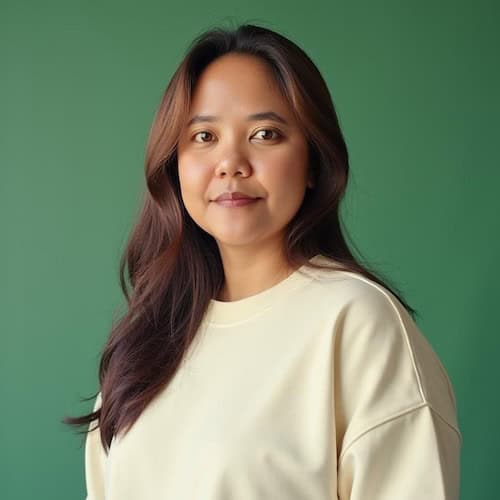
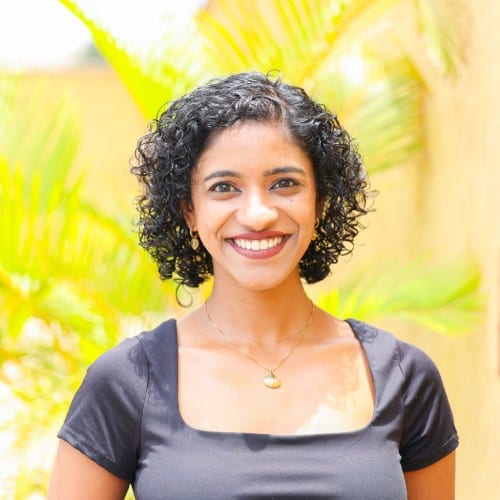

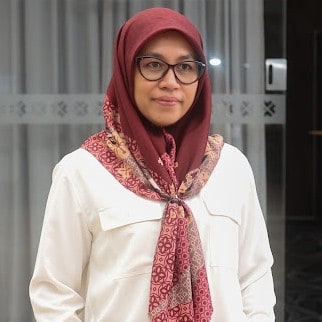
PRESENTATIONS:
-
- 8R Fabric Activation – Ani’s Pattern, Indonesia. Presenter: Ani Herna Sari, Yayasan Rekat Peduli Indonesia.
